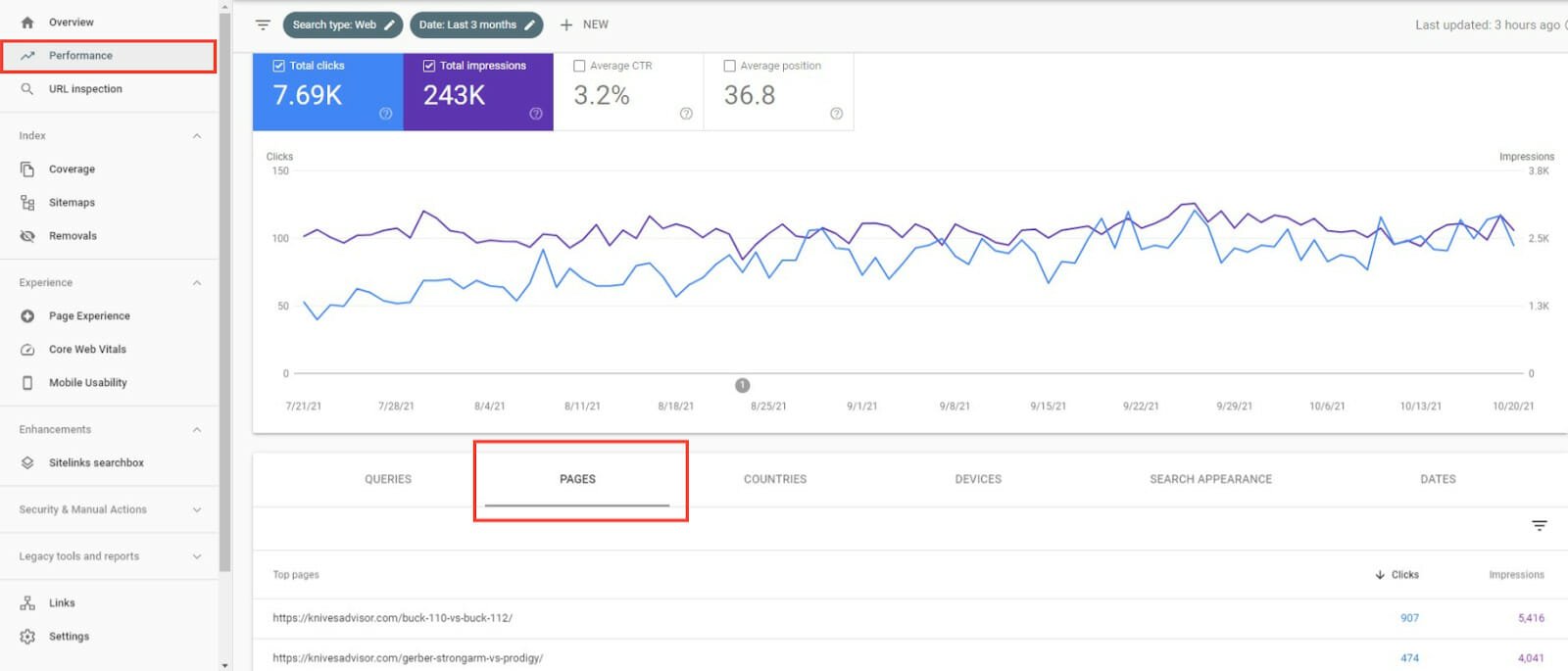SEO can be a divisive topic for a lot of digital marketers. Some question if it’s growing more obsolete each month and others hesitate to believe that the revenue returned (if any) from SEO is even worth the time investment in the first place.
These are valid questions, and they’re important to contemplate.
In this post, we’ll delve into the intricacies of how SEO influences your organic revenue growth, debunking misconceptions and reframing our expectations of how SEO ought to be viewed as a revenue driver.
The Rule of Seven and Building Brand Awareness
While SEO might be perceived as a tool primarily to used secure top rankings on search engine results pages, its underlying significance transcends these initial impressions.
This is where the rule of seven casts a revealing light on consumer behavior. This principle posits that a potential customer needs to come into contact with a brand’s messaging on at least seven occasions before transitioning from a passive observer to a converter:

This phenomenon isn’t instantaneous; it’s an intricate process requiring consistent engagement and orchestrated brand visibility across multiple placements. It is within this realm that the interplay between SEO and the rule of seven unfolds, forging a narrative of brand awareness that leaves a lasting imprint.
These encounters across diverse searches, inquiries and platforms develop a sense of repetition and consistency, ultimately aiding the user in recalling their brad when they finally realize their own need for a solution – a solution you have.
This isn’t merely about capturing momentary clicks; it’s about cultivating a profound connection that transcends the virtual sphere, cultivating allegiance and advocacy that underpin the trajectory of organic revenue expansion.
The Long Game: Nurturing Organic Revenue Growth
Search engine optimization not instant, it’s a slow burn.
Delayed gratification is like the motto phrase attached to SEO.
While it might be tempting to want instantaneous results, the reality is that SEO is a gradual journey that demands time and patience. A 10-to-15-year timeframe to grow your SEO might sound staggering, but it’s a natural mirror to the organic and enduring nature of business growth. It’s not to say you can start to see results from SEO in a 4-to-12-month timeframe, but reaching the point of substantial passive traffic from organic channels takes years to achieve.
But the light at the end of this long-drawn tunnel is that SEO holds staying power once your content is recognized as high quality and relevant. Once you reach the point where your older content is doing most of the heavy lifting for you, you’ll basically get a stream of organic traffic that’s almost free.
However, a lot of people shudder in disbelief when we tell them that proper SEO takes as long as ten years to mature.
This impatience can be a stumbling block, as SEO operates on the principle of compounding returns.
Just as investments grow over time, building a robust domain authority and nurturing online relationships gradually yield substantial dividends. The digital presence and prominence amassed through dedicated, consistent SEO efforts enhance a website’s visibility and credibility.
In a nutshell, all SEO techniques takes time. It’s about cultivating a sturdy foundation that steadily appreciates in value and audience magnetism.
Managing Your Brand’s Escape Velocity
In a world accustomed to instant gratification, the concept of waiting for five years to achieve an acceptable level of escape velocity probably sounds daunting:

Just like a spacecraft needs time and propulsion to break free from Earth’s gravity, your business requires the momentum of consistent SEO efforts to achieve sustainable growth.
As you build domain authority and invest in relationships, the compounding effect takes center stage, leading to enhanced brand recognition and increased organic revenue.
SEO’s Dual Role: Organic Traffic and Data Collection
At its core, the significance of SEO extends far beyond its reputation as a traffic-driving mechanism. While it’s true that SEO plays a pivotal role in channeling organic traffic to websites, its impact delves deeper, encompassing a realm of data collection that often remains hidden in the shadows.
Beyond the surface-level metrics of clicks and views lies a treasure trove of invaluable insights garnered from user interactions. Each click, every engagement, becomes a piece of a complex jigsaw puzzle that paints a detailed portrait of audience behavior and preferences.

Every user’s journey through a website is a trail of breadcrumbs that can be meticulously analyzed to extract profound understanding.
These interactions collectively weave a narrative of how visitors engage with the content and offerings provided. From the pages they linger on the longest to the links they find most enticing, this data unveils the pulse of user interest and intent. This intrinsic connection between SEO and data collection has transformative implications for crafting a holistic digital strategy.
However, the true magic happens when this collected data is applied to multiple purposes. Not only does it refine and optimize your SEO efforts, leading to more relevant and engaging content that aligns with audience interests, but it also fuels the engine of retargeting. The journey doesn’t end with a single visit; in fact, it’s only the beginning.
This personalized approach enhances the chances of conversion by rekindling the spark of familiarity and value that initially attracted the visitor.
Strategies for Organic Revenue Growth: Balancing the Short and Long Term
Achieving sustainable organic revenue growth from SEO involves a delicate equilibrium between short-term tactics and long-term vision. The journey to success in this dynamic landscape necessitates a strategic blend of approaches, with an understanding that the seeds sown today pave the way for the lush harvests of tomorrow.
Here are some strategies that encompass this multi-purpose perspective:
- Strategically Relevant Content Creation: Crafting content that addresses immediate needs of your audience while aligning with your long-term objectives is a cornerstone of successful SEO. This entails identifying trending topics, frequently asked questions, and current industry discussions to cater to the present needs of your target audience. Simultaneously, integrating evergreen content – material that remains relevant and valuable over extended periods – lays the groundwork for enduring engagement and consistent traffic.
- Keyword Optimization for Now and Later: Keywords play a pivotal role in SEO, offering insights into the language your audience uses to find information. In pursuit of organic revenue growth, strike a balance between optimizing for high-impact keywords that can yield immediate results and investing in those that may require time to mature. This multifaceted approach ensures visibility across different stages of a user’s journey while laying the foundation for future conversions.
- User-Centric Experience: User experience is paramount in both short-term conversions and long-term brand loyalty. A seamless, user-friendly website encourages immediate actions and positive engagement. At the same time, it contributes to lower bounce rates and higher visitor retention, factors that bolster your site’s authority and ranking in the long run.
- Link Building and Relationship Nurturing: Building a strong network of high-quality backlinks is akin to cultivating relationships in the business world. Prioritize short-term efforts in acquiring links that can drive immediate traffic and visibility. Simultaneously, dedicate time to fostering relationships with authoritative sources for long-term benefits, as these connections contribute to your site’s credibility and domain authority.
- Data-Driven Adaptation: Continuous monitoring and analysis of your SEO efforts yield insights that inform both short and long-term strategies. Short-term wins can be leveraged to refine and optimize content, while long-term data guides the evolution of your overarching SEO approach. Flexibility in response to data ensures that your SEO endeavors remain aligned with evolving trends and user behaviors.
- Patience and Persistence: The essence of SEO lies in its ability to compound over time. The patience to nurture your efforts and the persistence to consistently produce valuable content are essential components of your long-term success. Understand that while short-term gains are rewarding, the real magic of SEO unfolds gradually as your online presence becomes a valuable resource in your niche.
In navigating the intricate path toward organic revenue growth, remember that your SEO strategies are akin to tending to a garden. The seeds you plant today may blossom into captivating blooms tomorrow, and the beauty lies in the harmony between short-term gratification and long-term achievement.
Final Words On Cultivating Organic Revenue Growth through SEO
SEO is not dead. No, that is far from the case. It may be reshaping, but the simple truth that brands need to cultivate their content and brand messaging to appeal to their audience on the internet will forever be a relevant challenge for as long as the internet exists (or maybe if search engines disappeared entirely, which probably won’t happen any time soon).
Keep a finger on the pulse of your organic rankings, and don’t let it fall by the wayside. SEO is one of the most practical long-term digital marketing activities you can pursue, the rewards of which can be profound for your business.
If you want to see more organic revenue growth with SEO, Single Grain’s SEO experts can help!👇
Repurposed from our Marketing School podcast.



